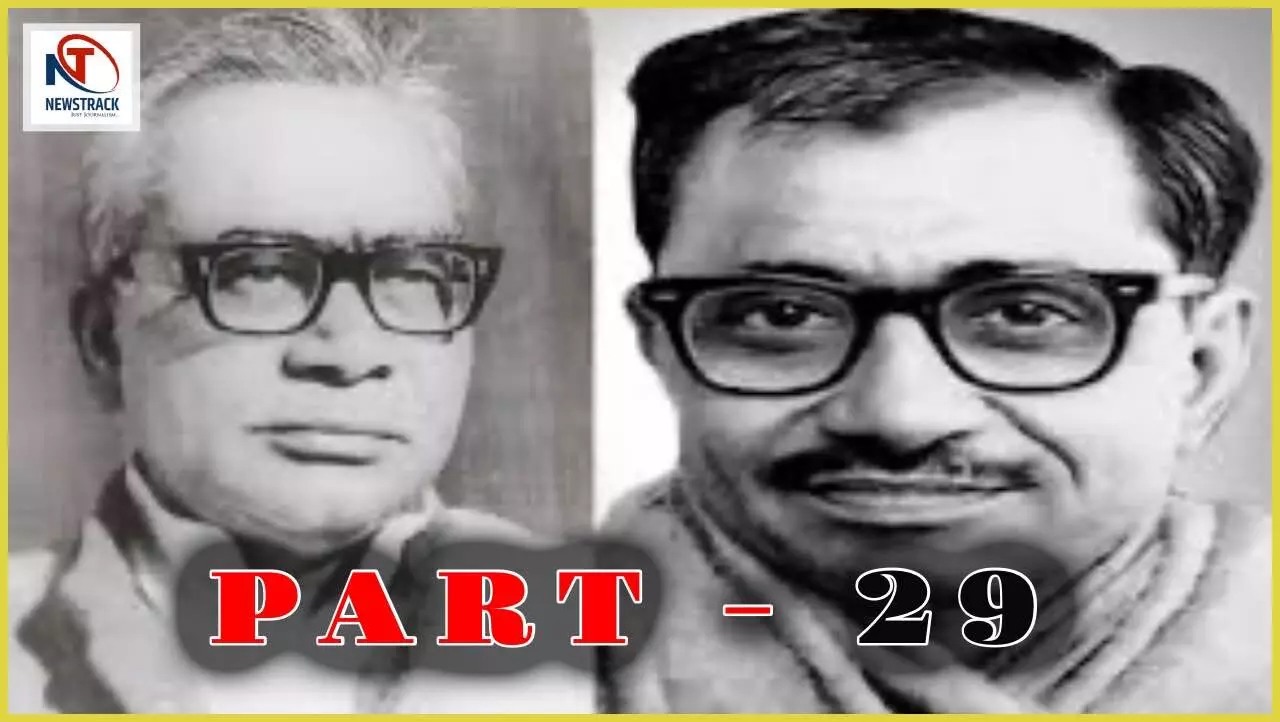TRENDING TAGS :
Book Part 29: National Security and Civilizational Confidence
Ram Manohar Lohia and Deen Dayal Upadhyay Book Part 29: They believed that a truly secure India must be one where the last citizen is protected, and the soul of the nation remains intact.
Ram Manohar Lohia and Deen Dayal Upadhyay Yogesh Mishra Book Part 29
A nation’s security does not rest on weapons alone. It is anchored in the self-confidence of its people, the resilience of its culture, and the clarity of its purpose. For Deendayal Upadhyay and Ram Manohar Lohia, national defense was not just a military issue — it was civilizational. They believed that a truly secure India must be one where the last citizen is protected, and the soul of the nation remains intact.
1. Lohia’s Idea of Self-Reliant Defense
Lohia was deeply critical of India’s defensive posture post-independence. He emphasized:
- Indigenous defense production
- Reducing dependence on foreign powers and weapons
- Promoting a people-centric defense mindset, where every citizen is a stakeholder
- Opposing both militarism and cowardice
He believed that a fearless society, aware of its history and strength, is the best shield against aggression.
2. Upadhyay’s Dharmic Approach to Security
Upadhyay viewed security through the lens of Dharma and cultural strength:
- India must defend not only its borders but its civilizational continuity
- National security is incomplete without spiritual security
- Internal threats like cultural erosion, moral decline, and disunity are as dangerous as external enemies
- A nation built on Sanatan values, self-respect, and discipline is inherently secure
He believed that a weak character creates a vulnerable country.
3. Internal Cohesion as Strategic Strength
Lohia insisted that social injustice breeds internal unrest, which becomes a national security threat.
Upadhyay emphasized Samajik Samrasata — social harmony — as a bulwark against disintegration.
Convergence: Security begins with societal unity, and unity cannot exist without equity and identity.
4. Education, Culture, and Vigilance
Both thinkers believed that civilizational awareness is crucial:
- Lohia wanted youth to study history, resistance, and self-defense
- Upadhyay called for nurturing cultural confidence, so no external force can dominate us mentally
A nation that forgets its heroes, weakens its institutions, or surrenders its values becomes defenseless from within.
5. Relevance in Contemporary India
Today, India faces:
- Terrorism, cyber warfare, and border threats
- Ideological subversion and cultural mimicry
- Distrust among communities, fueled by ignorance or propaganda
The insights of Lohia and Upadhyay demand a holistic security doctrine — one that protects not just territory, but truth, tradition, and togetherness.
Conclusion
For Ram Manohar Lohia and Deendayal Upadhyay, national security was a symphony of strength and soul. Where Lohia sought courage through people’s participation and self-reliance, Upadhyay fortified India’s defense through dharma and cultural clarity. In a world of shifting threats, their message remains steady: A strong nation is one that knows who it is, why it exists, and what it must protect — not just at the borders, but in the hearts of its people.


